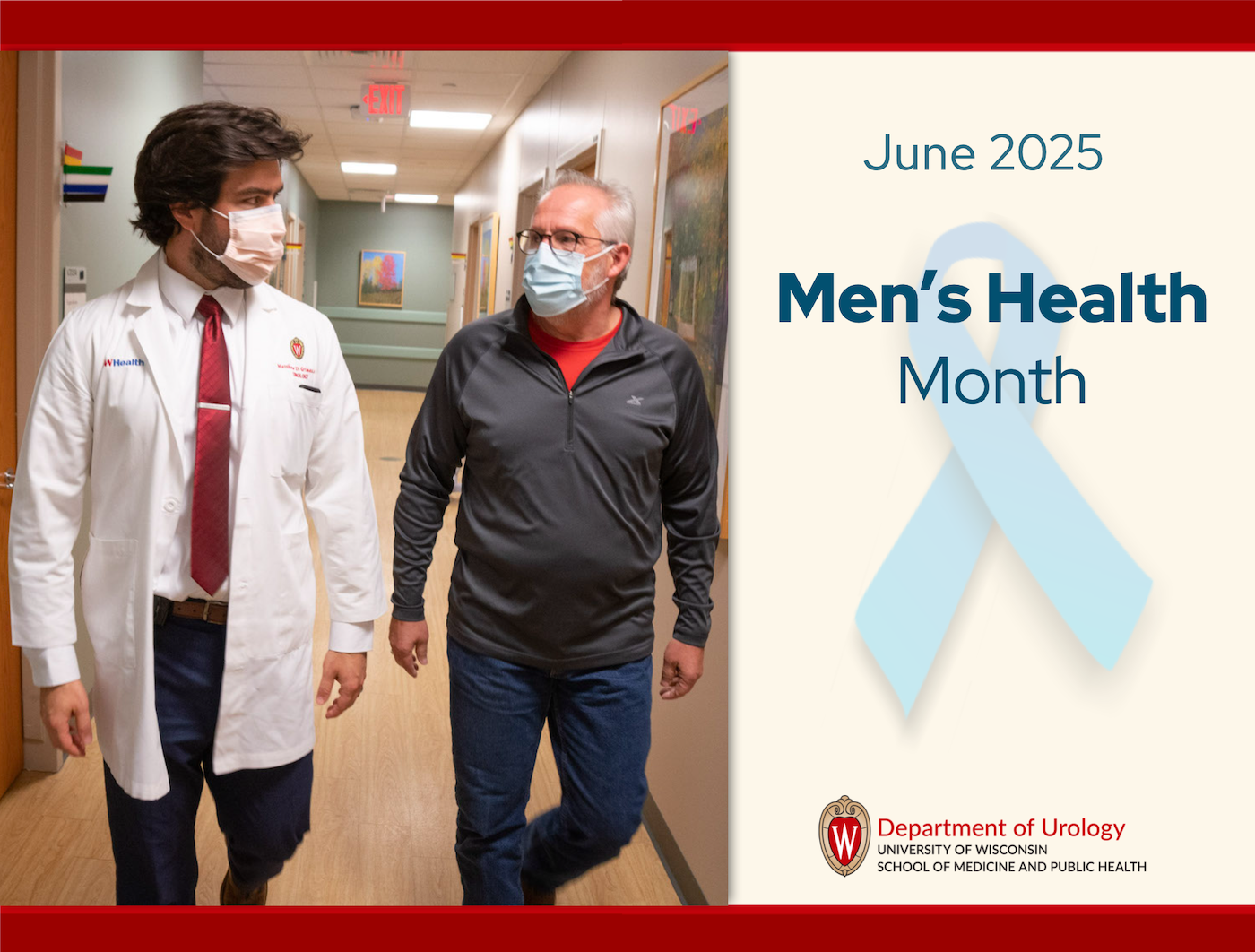
Every June, Men’s Health Month encourages men to take charge of their health, and a key component of that is urologic health. From prostate care to urinary function, urologic conditions affect millions of men each year and can have a significant impact on quality of life if left unaddressed.
Men can experience a broad range of issues related to their urinary tract and reproductive system. Common conditions include:
- Benign Prostatic Hyperplasia (BPH) – an enlarged prostate that can cause frequent urination, especially at night.
- Prostate Cancer – the second most common cancer among men, with early detection often leading to highly successful treatment.
- Erectile Dysfunction (ED) – a common condition, often related to cardiovascular health or diabetes.
- Kidney Stones – painful and increasingly common, often related to diet and hydration.
- Urinary Incontinence – is not just a women’s issue; many men experience leakage or urgency, particularly after prostate surgery.
Proactive care can lead to early detection and better outcomes. Men over 50 – or over 40 with a family history – should talk with their healthcare provider about prostate cancer screening. Similarly, routine checkups can help identify early signs of bladder or kidney issues.
Improving urologic health doesn’t always require drastic steps. Some simple, effective habits include:
- Staying well-hydrated
- Eating a balanced, low-sodium diet
- Exercising regularly
- Avoiding tobacco and limiting alcohol
- Managing stress and chronic conditions like diabetes or hypertension
Too often, men delay seeking care for urologic issues due to embarrassment or the misconception that symptoms are just “part of aging.” This month, make a point of normalizing these conversations and prioritizing urologic health.
If you or a loved one has questions or concerns about urologic health, don’t wait. Schedule a checkup and take a proactive step toward better health today.